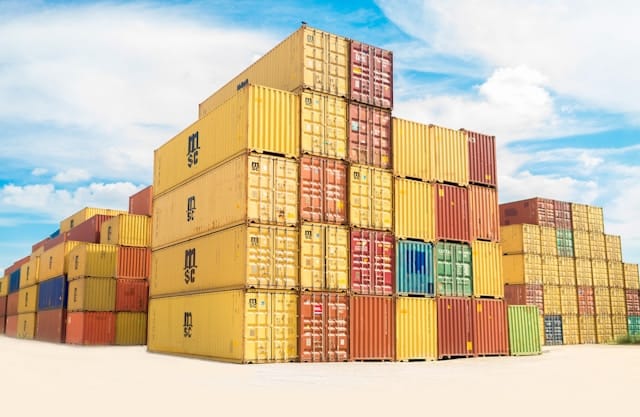What Is the Role of AI in Streamlining UK E-commerce Logistics?

As businesses in the UK increasingly embrace the world of online commerce, efficiency in logistics comes under a sharper spotlight. To remain competitive, noteworthy companies must ensure their product supply chains are primed for rapid response times and can adapt to fluctuating customer demands. Enter the transformative power of artificial intelligence (AI). This technology’s role in shaping more efficient, intelligent e-commerce logistics is crucial and ever-evolving.
How AI Streamlines Supply Chain Management
The first step in understanding AI’s role in e-commerce logistics is scrutinising its impact on supply chain management. Supply chain management is the backbone of any e-commerce business. It involves every step taken to get a product from the manufacturer to the customer, including procurement, production, warehousing, transportation, and delivery.
Also read : How Can UK Food Startups Leverage Subscription Models for Customer Loyalty?
AI technology helps automate and optimise these operations, making the entire process much more efficient. It does this by analysing massive amounts of data in real-time, identifying patterns and making predictions that humans alone could never achieve. This results in better inventory management, improved demand forecasting, and ultimately, a smoother, faster, more reliable service for the customer.
For example, AI algorithms can analyse historical sales data to accurately predict future demand for a product. This information enables businesses to adjust their inventory levels accordingly, preventing stockouts or overstocks that could harm customer satisfaction and the company’s bottom line.
Also to discover : What Are the Implications of the UK’s Changing Privacy Regulations for Online Marketers?
Enhancing Customer Experience with AI in E-commerce
Another fundamental aspect of e-commerce logistics is the customer experience. With online commerce, customers expect speed, convenience, and personalised service. Any hiccup in the logistics chain, from delayed deliveries to incorrect orders, can negatively impact the customer experience and tarnish a company’s reputation.
AI can assist businesses in avoiding these pitfalls and delivering an unmatched customer experience. For instance, AI-driven chatbots can handle customer queries around the clock, providing instant answers and freeing up human resources for more complex tasks. Furthermore, personalised product recommendations, powered by AI, can transform the online shopping experience, making it more engaging and tailored to individual customer preferences.
Leveraging AI for Business Intelligence in E-commerce Logistics
Business intelligence, the process of analysing data to make informed business decisions, is another area where AI can significantly benefit e-commerce logistics. By sifting through vast amounts of data, AI can extract valuable insights about market trends, customer behaviour, and operational efficiency.
These insights can help businesses identify areas of their logistics operations that need improvement, such as delivery times, warehousing efficiency, or supplier reliability. Companies can also utilise AI to gain a competitive edge, understanding consumer behaviour and adjusting their strategies to meet and exceed customer expectations.
AI’s Role in Sustainable Logistics Operations
As the global industry increasingly emphasises sustainability, AI has a crucial role to play in making e-commerce logistics more environmentally friendly. AI can optimise routing for deliveries, reducing fuel consumption and emissions. It can also improve warehouse operations, reducing energy use and waste.
For example, AI algorithms can analyse traffic patterns and weather conditions to identify the fastest, most fuel-efficient delivery routes. In warehouses, AI can optimise packing, storage, and picking processes, reducing wasted space and energy.
Predictions for AI in UK E-commerce Logistics
While we can see the profound impact AI is already making in e-commerce logistics, the best is likely still to come. As technology continues to evolve, and as businesses collect more data, AI’s ability to streamline logistics and improve the customer experience will only grow stronger.
One prediction is that AI will become even more integrative, working seamlessly with other technologies, such as the Internet of Things (IoT), to create a fully interconnected and intelligent supply chain. This could lead to even greater efficiency and personalisation in e-commerce logistics.
Another potential development is the increased use of AI-powered robotics in logistics operations. These robots could handle tasks such as packing and sorting in warehouses, relieving human workers from repetitive, physically demanding jobs and reducing errors.
While the future of AI in UK e-commerce logistics is still largely unwritten, one thing is clear: it’s a future that businesses of all sizes should be excited about and prepared for. After all, those who are ready to harness the power of AI in their logistics operations will be best positioned to thrive in the world of online commerce.
E-commerce Logistics: AI vs Third Party Logistics Providers
Traditionally, e-commerce businesses have depended on third-party logistics providers (3PLs) to manage their supply chains. However, as artificial intelligence advances, the role of 3PLs is being challenged.
One of the main benefits of using AI is its ability to process and analyse data in real-time. This presents an advantage over 3PLs, as AI can deliver insights instantaneously, enabling businesses to respond to changes in demand or supply more quickly. This feature of real-time analytics is particularly useful for demand forecasting, a critical aspect of inventory management.
AI also provides the advantage of predictive analytics. Through machine learning algorithms, AI can examine past patterns and predict future outcomes with a degree of accuracy that surpasses human capability. This can be instrumental in enhancing customer service by predicting product demand, thus ensuring optimal stock levels and preventing customer disappointment caused by stock-outs.
On the other hand, 3PLs bring a wealth of experience and established relationships with various elements of the supply chain, including suppliers and transportation providers. However, these advantages can be overshadowed by the superior efficiency, speed, and capacity for learning and improvement that characterise AI technology.
Automation and Autonomous Vehicles in AI-guided E-commerce Logistics
Perhaps one of the most exciting prospects for AI in e-commerce logistics is the potential for increased automation. As AI algorithms continue to learn and improve, they can automate more complex tasks, potentially transforming every step of the logistics supply chain.
A significant area of focus is the use of autonomous vehicles in the logistics industry. From drones delivering small packages to self-driving trucks transporting goods over long distances, autonomous vehicles could revolutionise the logistics industry. Not only can they operate around the clock, but they can also optimise routes in real-time, considering traffic and weather conditions, thereby minimising delivery times and maximising customer satisfaction.
The use of AI is not limited to external logistics; it’s also transforming internal logistics processes. In warehouses, for instance, AI-powered robots can sort, store, and retrieve items, improving efficiency and reducing the possibility of human error.
The integration of natural language processing (NLP) technology within AI systems can also enhance the online shopping experience. NLP allows AI chatbots to understand and respond to customer queries in a more human-like manner, providing a more personalised customer experience.
Conclusion
From improving supply chain management to enhancing the customer experience, the role of AI in streamlining UK e-commerce logistics is vast and transformative. As we look to the future, we can anticipate a world where AI is deeply integrated within e-commerce logistics, working alongside other technologies like IoT and autonomous vehicles to create a more efficient and personalised shopping experience.
However, it’s important to note that while AI can provide many benefits, it should be seen as a tool to enhance human capability, not replace it. The human touch is still essential, especially in customer service and in maintaining partnerships within the supply chain.
For UK e-commerce businesses, embracing AI technology in their logistics operations is no longer a luxury, but a necessity. It’s an investment that promises improved efficiency, higher customer satisfaction, and ultimately, a stronger position in the competitive world of online commerce. The journey may be complex, but the rewards are undeniably worth it.
